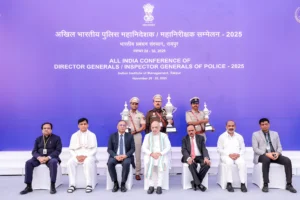
The Allahabad High Court denied bail to Azim, who faces accusations of forced conversion and sexual exploitation. The court highlighted that the Uttar Pradesh Prohibition of Unlawful Conversion of Religion Act, 2021 aims to protect religious freedom and uphold secularism in India. The decision underscores the Act’s intent to foster social harmony and ensure that all individuals’ religious freedom respect.
Justice Rohit Ranjan Agarwal, who led the case, clarified that while the Constitution guarantees the right to practice and propagate one’s religion, it does not grant a collective right to impose conversion on others. Both the person choosing to convert and the person being converted have equal rights to religious freedom.
Azim faces charges under Sections 323, 504, and 506 of the Indian Penal Code (IPC), and Sections 3 and 5(1) of the Uttar Pradesh Prohibition of Unlawful Conversion of Religion Act, 2021. He stands accused of forcibly converting a girl to Islam and sexually exploiting her. Azim applied for bail, asserting that the allegations against him were false. He claimed that the informant, who had been in a relationship with him, left her home voluntarily and confirmed their marriage in statements recorded under Sections 161 and 164 of the Criminal Procedure Code (CrPC).
Coercion To Convert To Islam
The Public Prosecutor countered by presenting the informant’s statement under Section 164 CrPC, in which she alleged coercion to convert to Islam and described the marriage as occurring without her consent to convert. The court noted that the informant claimed Azim and his family had coerced her into accepting Islam, forced her to witness animal sacrifices on Bakrid, and compelled her to eat non-vegetarian food against her will.
The court also observed that Azim allegedly held the informant captive and pressured her into performing Islamic rituals. Azim failed to provide evidence showing that he had filed an application under Section 8 of the Act to legally convert the informant before their marriage.
Based on these findings, the court determined that a prima facie violation of Sections 3 and 8 of the Prohibition of Unlawful Conversion of Religion Act occurred, which is punishable under Section 5 of the Act. The court therefore rejected Azim’s bail application.
To read more such news, download Bharat Express news apps


















